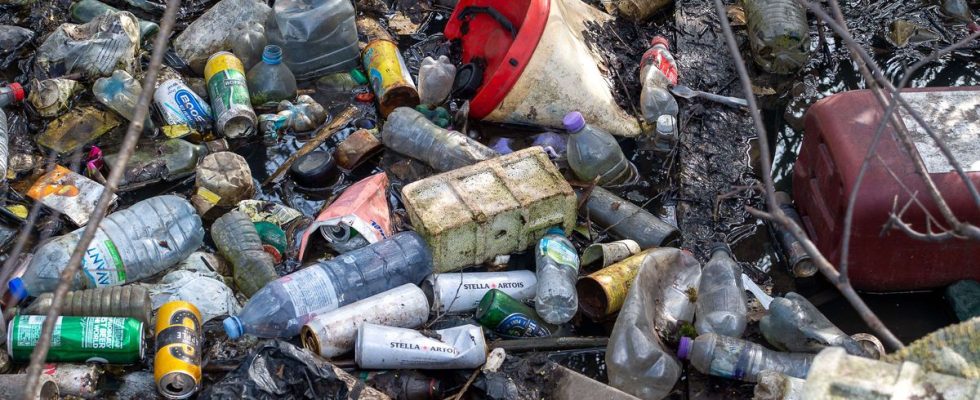It is a much-awaited treaty, especially by environmentalists. To weigh in on this future international text against plastic pollution, whose negotiations are being conducted under the aegis of the United Nations and its Environment Program (UNEP), the World Wide Fund for Nature (WWF) is publishing two reports on Monday. techniques paving the way for a liberation for humanity from its dependence on plastics. These discussions must lead, by the end of 2024, to a legally binding treaty to resolve this major crisis, which threatens human health and aggravates the collapse of biodiversity.
For the WWF, the future treaty must impose “the immediate prohibition of unnecessary plastic fibers in wet wipes, cigarette filters and tea bags, single-use items – such as plastic cutlery, plates, cups, cotton swabs and disposable e-cigarettes – as well as microplastics in toothpaste and skincare products.” “Where it is not possible to ban harmful products immediately, the treaty must guarantee their complete elimination by 2035 at the latest,” recommends the WWF, which publishes its reports as the second round of the cycle approaches. treaty negotiations, scheduled for Paris from May 29 to June 2.
Class I and II products
WWF’s detailed roadmap consists of two reports produced by Eunomia. The first “identifies the most harmful plastic products” by evaluating their composition, their uses, their life cycle and their ecological impact. It then categorizes them, divided into two groups: “those that can be significantly reduced or eliminated in the short term (Class I)” and those that, failing that, “require global control measures to promote recycling, responsible management and disposal (Class II)”.
Class I includes, in addition to plastics to be banned immediately, plastic bottles, most food packaging or packaging for hygiene products, as well as fibers or plastic additives in tires, clothing and cosmetics, sources of microplastics polluting water and air.
Control over production
The second report then lists “specific control measures aimed at reducing and eliminating the production, consumption and trade of Class I plastics, as well as managing and safely moving Class II plastics,” taking into account the socio-economic and industrial realities of the world.
“We are locked into a system where we produce much more plastic than any one country can handle properly,” said Marco Lambertini, a senior WWF official, in a statement. “According to the current trajectory, By 2040, global plastic production will double, plastic leakage into our oceans will triple, and the total amount of plastic pollution in our oceans will quadruple,” warns the former WWF boss.
Nearly half of plastic is used for cheap, short-lived or single-use products, which can take hundreds of years to degrade, WWF said, noting that “most of these products are consumed in high and upper middle income countries. “Industry has so many technologies to offer more sustainable alternatives and substitutes” and legislation must push them to implement them, adds Marco Lambertini.

